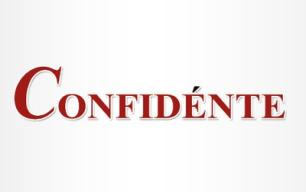Interview preparation starts way before you’re called for an Interview

In today’s fast-moving and highly competitive job market, waiting until you are invited for an interview to start preparing is no longer good enough. If you truly want to stand out, interview preparation must start way before the invitation lands in your inbox.
The truth is, success at interviews is not about last-minute cramming. It is about the daily habits, intentional actions, and strategic decisions you make throughout your career journey. It is about consistently building the right skills, presenting yourself professionally, and positioning yourself as someone who is ready—not someone who is scrambling.
Here’s why early and ongoing preparation is crucial:
Your CV is Your First Impression
Before you ever walk into a room or join a video call, your CV speaks on your behalf. It tells your story, highlights your strengths, and shows whether you are a good fit. A rushed or outdated CV often signals a lack of seriousness or readiness. An outstanding CV, on the other hand, is carefully crafted, clear, and aligned with the roles you are targeting. It showcases not just what you have done, but how you have added value in every role you’ve held.
Tip: Regularly update your CV, even when you are not actively job hunting. Treat it as a living document, a reflection of your professional growth.
Your Elevator Pitch Builds Your Confidence
An elevator pitch is your opportunity to introduce yourself in a powerful, memorable way—whether at a networking event, on LinkedIn, or during an interview. Waiting until you are preparing for an interview to figure out “what you want to say about yourself” is risky. Practising and refining your personal pitch ensures you can confidently and clearly communicate who you are, what you do and what you bring to the table, at any time.
Tip: Keep it simple, authentic, and focused on the value you add.
Soft Skills Matter as Much as Hard Skills
Technical skills and qualifications might get you noticed, but soft skills—like communication, leadership, problem-solving, emotional intelligence, and teamwork—are what employers are truly looking for in top candidates. The mistake many professionals make is to focus solely on technical ability, thinking soft skills can be addressed later. However, these are skills that take time to build and refine.
Tip: Work consistently on improving your soft skills through training, mentorship, and practice in real-world settings.
Job Search Strategies Need Thoughtful Planning
A job search is not just about applying to countless roles online and hoping for the best. It is about having a clear strategy: knowing what industries or companies you want to target, tailoring your CV and cover letter for each opportunity, leveraging your professional network, and maintaining an active and professional online presence.
Being strategic gives you control and direction, instead of feeling lost and reactive when you need a new opportunity.
Tip: Create a simple action plan for your job search. Identify companies you are interested in, set networking goals, and track your applications.
Interview Skills are Built Over Time
Many people fear interviews because they are unfamiliar with the process. Confident interview skills like answering behavioural questions, asking smart questions, and managing nerves are developed through practice, feedback, and real experience.
By preparing early, you allow yourself time to reflect on your past achievements, understand how to present them, and fine-tune how you tell your story.
Tip: Practise answering common interview questions aloud. Consider doing mock interviews with a mentor, coach, or trusted peer.
Career Mentorship Gives You an Edge
Having a mentor or career coach can dramatically speed up your growth and sharpen your competitive edge. Mentorship provides guidance, honest feedback, and new perspectives you might miss on your own. It helps you stay accountable to your career goals and prepares you to spot and seize opportunities.
Tip: Actively seek out mentorship relationships. They are not just for beginners—every professional, at every stage, benefits from wise counsel.
Position Yourself as the CEO of Your Career
When you think of yourself as the CEO of your career, you realise that you are not waiting for someone to offer you an opportunity—you are creating opportunities for yourself. Preparation, therefore, becomes part of your lifestyle, not a panic-driven activity done only when you need a new job. The professional world rewards those who stay ready. When you invest consistently in your career development, you naturally become more confident, more attractive to employers, and better positioned for leadership and growth.
In Conclusion
Preparation is your best interview outfit—it never goes out of style. You can dress sharp, but nothing impresses more than a well-prepared mind. Wear preparation daily. Remember, you don’t get ready for opportunities—you attract them through preparation.
Well-prepared professionals don’t chase roles. They position themselves so well that roles find them.
- 2 views









Comments